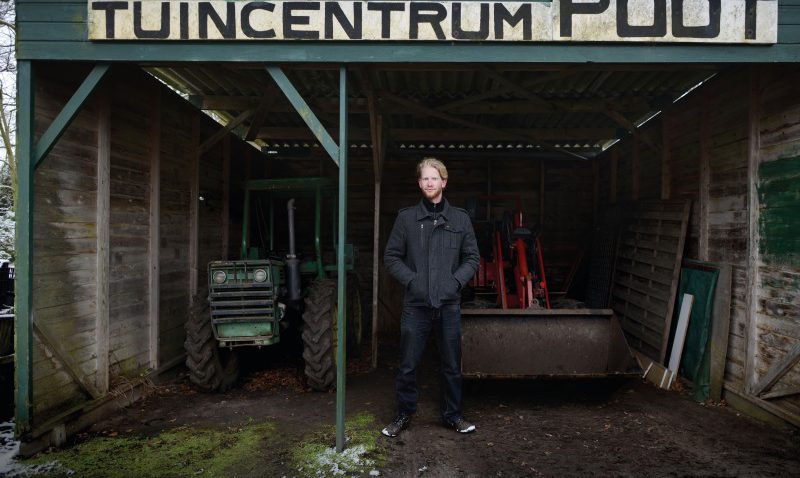Eduard starts his own healthcare facility
Student Eduard Poot starts his own little company for people with an intellectual disability or behavioural problems: they will maintain the gardens of the elderly.
“It is mostly the misfits. They feel do not feel very appreciated, because they are seen as problem cases”, says Eduard Poot about the people he wants to help with his just established healthcare venture. “They need extra help to get a job. I mainly focus on adolescents and young adults with a mental disability and disorders like autism and ADHD. They usually have the feeling they are doing something wrong. I hope I am able to adjust that feeling.”
The 26-year-old Social Educational Care student will care for their daily activities. He wants them to tend the gardens of the elderly. “For free, so they will be grateful. Most of the time they are not able to do this themselves anymore. Moreover, they are often lonely, so it will be nice when someone comes along with whom they can have small talk with.” A great interplay. “I suspect my clients will get a sense of worth due to the care.”
Trust and freedom
Eduard needed a company to guide him with his graduation project. Eventually he landed at ‘Habitat Lekker Leven’, a healthcare facility which was founded by a former teacher of the study programme Social Educational Care. They hit it off immediately. “I found it very pleasant to get so much trust and freedom. I could be owner of the project.”
Eduard’s company is officially still part of Habitat. This way clients will not be assigned to him directly. Furthermore, he needs to relinquish ten percent of the profit but he gets a lot for it in return: “If I am ill or want to go on a holiday, people from Habitat can cover for me. In addition, I have support in the way they operate and I get guidance from my supervisor.” Eduard hopes to start his own company within five years.
Brother with autism
Eduard, residing in Hattem, was handed a lot of matters at home that come in handy now: “My father has a garden centre where I worked and played at. It was there that I discovered how much fun it is to work in the garden and that you easily socialise with others. Besides, through my father, I have witnessed the benefits of having your own company: you can do whatever you want, you have plenty of room to be creative and you feel more responsible than when you are an employee.”
However, there is one other thing Eduard inherited from home: “My brother has autism. Thus, I learned how to interact with someone who has a disability at home. For example, he can get angry spontaneously, but I learned that it is not personal. It is caused by something that does not go the way he wants it to go. This helped me during my studies too. At school I got a lot of theory, but I was able to imagine it much more through my brother.”
Quick, quick, quick
“During this project, I learned to be patient”, says Eduard laughingly. “I also want to do things quick, quick, quick. If I have a fun idea, I will immediately carry it out, without thinking it through. Some things I do clumsily, but I discover it along the way. Unfortunately, this is not the way when you want to establish an enterprise. A year ago, I started with this idea and at the end of this month I am hoping to welcome my first clients. I did not expect that when I started it.”
What took so much time? “I have learned to first get everything straight and prepare. Even though this takes some time, I do notice that this is the way to avoid mistakes and problems. For example, at first I wanted to do everything at my father’s nursery until I discovered that I at least needed a separate space to welcome guests.” Something different Eduard has learned: ideas get better if you discuss them with different people. “Because I did that, I heard about the problem of Hattem’s elderly who are not able to do their landscaping on their own. This is how I eventually landed at this target group.”
Rebellious
At a healthcare facility, a lot of time is wasted on protocols and rules, Eduard claims: “For example, you have to report how many minutes you spent on which activity very precisely. And you need to check standard procedures: if someone washes himself daily, et cetera. Most of the clients can do that themselves. I am bummed about that, because that is why there is less time to give counselling to the things they really need. That cannot be the intention, right? It has even been this way at school: a report must suffice through many regulations. Because of this, I get rebellious, since I want to creatively tell my own stories. Therefore, a healthcare facility is so nice: I can determine where I will put my focus on myself. And then I can do what I find most important: helping people.”
Jitse Schipper
